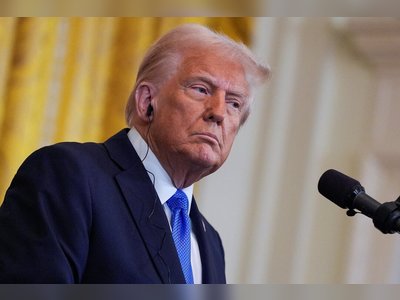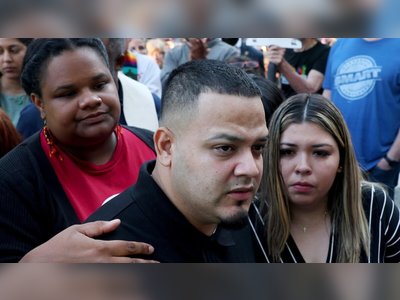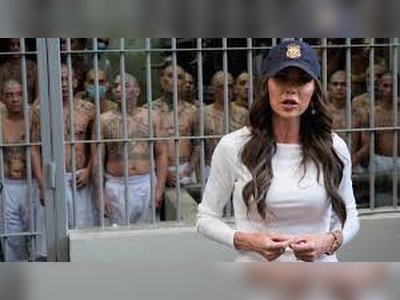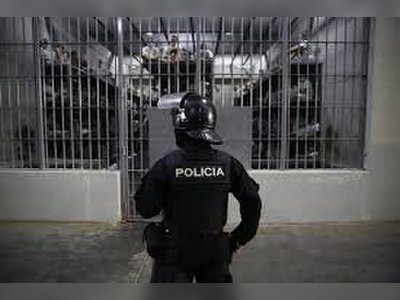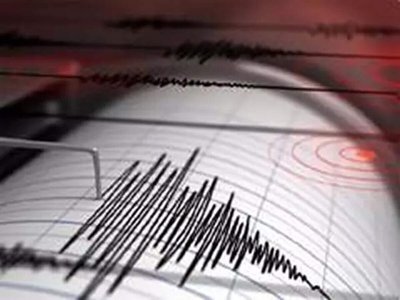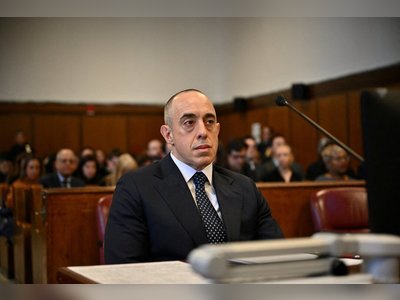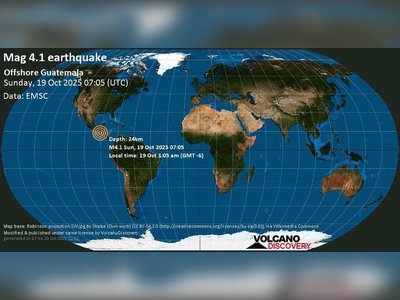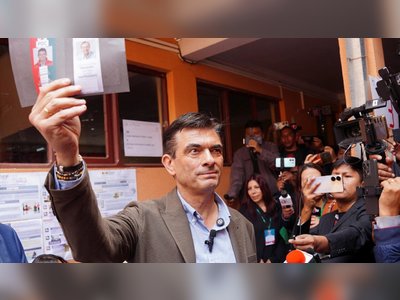San Salvador Times
The Pulse of El Salvador’s Transformation
Monday, Oct 20, 2025
San Salvador Times
Trump Accuses Colombia’s President of Drug-Leadership and Announces End to US Aid
President Donald Trump accused Colombia’s President Gustavo Petro of being an “illegal drug leader”, pledged to cut US subsidies and imminently impose tariffs, as Washington steps up military operations against narcotics smuggling.
President Donald Trump on Sunday publicly accused Colombian President Gustavo Petro of being an "illegal drug leader" and announced that the United States will cease payments and subsidies to Colombia.
Mr. Trump, posting on his social media platform, labelled Mr. Petro’s government a "drug-manufacturing machine" and vowed that if the Colombian administration did not act to shut down drug production, the United States “will close them up for him, and it won’t be done nicely”.
Talking to reporters aboard Air Force One, Mr. Trump said Colombia “does nothing to stop” illicit drug production, and that “they are a drug manufacturing machine. with a lunatic for a president”.
He said that major tariffs on Colombian exports would follow and that the aid relationship was under immediate review.
The move follows events including a recent US military strike on a vessel linked to Colombia’s National Liberation Army (ELN) in the Caribbean, which the Colombian government disputes.
The Colombian Foreign Ministry condemned the remarks as an offensive violation of Colombia’s sovereignty and dignity, calling the accusations “an extremely serious act” directed at the nation’s president.
Mr. Petro rejected the charges, saying “I am not a businessman, I am even less a drug trafficker. There is no greed in my heart”.
He reaffirmed Colombia’s anti-narcotics efforts and challenged the American narrative.
The announcement comes amid a historic rise in coca cultivation in Colombia and the recent decision by the United States to “decertify” Colombia as a partner in the global counternarcotics effort.
Analysts warn that such a breakdown in the bilateral relationship could undermine intelligence and security cooperation that has been central to Latin America’s anti-drug operations for decades.
Mr. Trump’s dramatic escalation signals a new posture toward Latin America, with threats of tariffs and suspension of aid aimed at compelling Colombia to intensify its drug-eradication efforts.
The Colombian government now finds itself navigating both internal cultivation challenges and rapidly deteriorating ties with a key traditional ally.
The full consequences for US-Colombia cooperation and regional strategy remain to unfold as the administration contemplates policy and enforcement responses, while Bogotá evaluates its next steps in the face of mounting pressure from Washington.
Mr. Trump, posting on his social media platform, labelled Mr. Petro’s government a "drug-manufacturing machine" and vowed that if the Colombian administration did not act to shut down drug production, the United States “will close them up for him, and it won’t be done nicely”.
Talking to reporters aboard Air Force One, Mr. Trump said Colombia “does nothing to stop” illicit drug production, and that “they are a drug manufacturing machine. with a lunatic for a president”.
He said that major tariffs on Colombian exports would follow and that the aid relationship was under immediate review.
The move follows events including a recent US military strike on a vessel linked to Colombia’s National Liberation Army (ELN) in the Caribbean, which the Colombian government disputes.
The Colombian Foreign Ministry condemned the remarks as an offensive violation of Colombia’s sovereignty and dignity, calling the accusations “an extremely serious act” directed at the nation’s president.
Mr. Petro rejected the charges, saying “I am not a businessman, I am even less a drug trafficker. There is no greed in my heart”.
He reaffirmed Colombia’s anti-narcotics efforts and challenged the American narrative.
The announcement comes amid a historic rise in coca cultivation in Colombia and the recent decision by the United States to “decertify” Colombia as a partner in the global counternarcotics effort.
Analysts warn that such a breakdown in the bilateral relationship could undermine intelligence and security cooperation that has been central to Latin America’s anti-drug operations for decades.
Mr. Trump’s dramatic escalation signals a new posture toward Latin America, with threats of tariffs and suspension of aid aimed at compelling Colombia to intensify its drug-eradication efforts.
The Colombian government now finds itself navigating both internal cultivation challenges and rapidly deteriorating ties with a key traditional ally.
The full consequences for US-Colombia cooperation and regional strategy remain to unfold as the administration contemplates policy and enforcement responses, while Bogotá evaluates its next steps in the face of mounting pressure from Washington.
